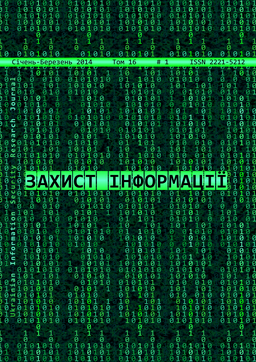AUTHENTICATION SCHEME ON FRACTAL SETS
DOI:
https://doi.org/10.18372/2410-7840.16.5396Keywords:
authentication, zero-knowledge protocol, fractal, fractal set, web-securityAbstract
Implementation of authentication tools is the requirement for secured information system in open networks. Known authentication protocols are based on some secret knowledge (key or password) checking. Preferable scheme for checking procedure is client-server dialog without transferring of secret knowledge, even in ciphered form, also known as zero-knowledge protocol. Such protocols, as a rule, use mathematically complex problems without known simple solution for inverse calculation. This obscurity case a weakness of protocols – discovering solution of the problem impairs the secrecy of protocol. It is proposed the authentication schemes built on complex fractal sets including distant knowledge diagnostic methods. Fractal sets suitable for posed problem due to properties of finiteness and infiniteness combination. Property of finiteness allows set construction; infiniteness ensures multiple usage of the scheme. The algorithm of client-server communication is shown. Usage of authentication scheme could improve the network information resource securityDownloads
Published
2014-03-24
Issue
Section
Articles
License
Authors who publish with this journal agree to the following terms:- Authors retain copyright and grant the journal right of first publication with the work simultaneously licensed under a Creative Commons Attribution License that allows others to share the work with an acknowledgement of the work's authorship and initial publication in this journal.
- Authors are able to enter into separate, additional contractual arrangements for the non-exclusive distribution of the journal's published version of the work (e.g., post it to an institutional repository or publish it in a book), with an acknowledgement of its initial publication in this journal.
- Authors are permitted and encouraged to post their work online (e.g., in institutional repositories or on their website) prior to and during the submission process, as it can lead to productive exchanges, as well as earlier and greater citation of published work (See The Effect of Open Access).

